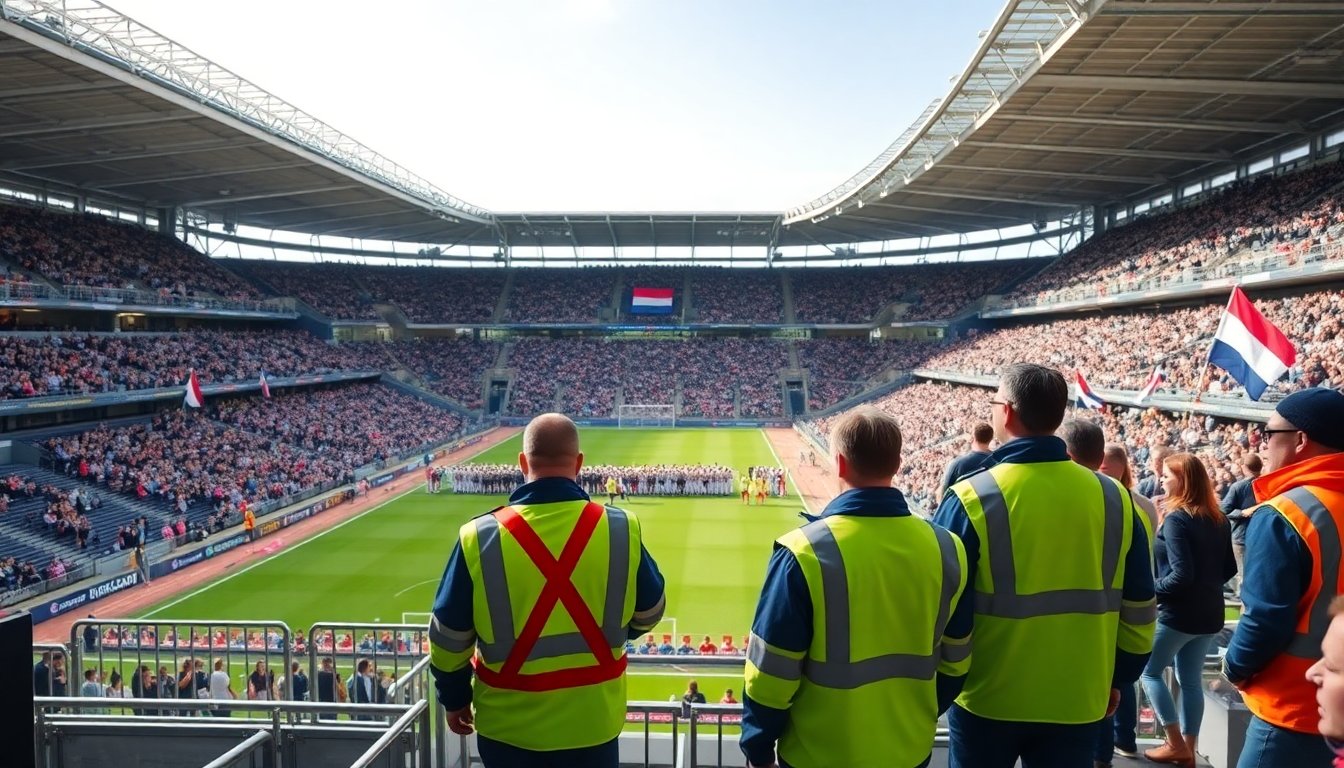As October 2025 unfolds, the Netherlands is witnessing a range of pivotal events that are shaping its social and political landscape. From discussions surrounding stadium safety to controversies involving partnerships with Israel, the nation is undergoing notable transformations. This article delves into these recent developments, providing insights into their implications for Dutch society.
Improved safety measures in Dutch stadiums
Recent reports indicate a decrease in incidents and the issuance of DASPO bans in stadiums across the Netherlands. This positive trend emerges from enhanced security protocols that prioritize fan safety and promote a more enjoyable atmosphere during sporting events.
The measures adopted by various clubs are geared towards preventing violence and ensuring that all attendees can engage in the excitement of the game without fear.
Community engagement and awareness
The reduction in disturbances within stadiums can be attributed to a growing emphasis on community engagement and awareness campaigns.
Clubs are increasingly collaborating with local authorities and fan organizations to foster a culture of respect and responsibility. By involving fans in discussions about safety, the clubs are instilling a sense of ownership and collective accountability, further contributing to this positive shift.
Controversial academic stances on Israel
In a significant move, the University of Amsterdam (UvA) has decided to halt its collaborations with Israeli institutions, citing evidence of genocide in Gaza. This decision has sparked a heated debate within the academic community and beyond, as it raises questions about the role of educational institutions in political matters and their responsibilities toward global human rights.
Academic freedom and ethical considerations
The UvA’s stance reflects a growing trend among universities worldwide to reassess their partnerships based on ethical considerations. Critics argue that such decisions may infringe upon academic freedom and hinder collaborative research, while supporters assert that universities have a moral obligation to respond to humanitarian crises. This complex issue showcases the challenges faced by educational institutions in navigating the intersection of academia and ethics.
Social justice struggles in the Netherlands
A recent incident involving an LGBTIQ couple in The Hague has brought attention to ongoing social justice struggles in the Netherlands. The couple faced bureaucratic challenges when attempting to secure legal recognition as parents for their newborn child, highlighting systemic issues that still affect marginalized communities.
Advocacy and legal reforms
This situation has reignited discussions about the need for legal reforms that ensure equal rights for all families, regardless of their sexual orientation. Advocacy groups are mobilizing to push for changes that would streamline the recognition process for same-sex couples, ensuring that no family faces undue hardship when seeking legal acknowledgment. The resilience of these communities continues to inspire broader societal shifts toward inclusivity and equality.
Incidents of theft and public safety concerns
In another notable event, the Assen Museum experienced a theft involving gold artifacts, raising concerns about security and public safety at cultural institutions. The case has drawn parallels to broader societal issues, including the treatment of marginalized groups within the criminal justice system.
Public perception and security measures
The incident has prompted a reevaluation of security protocols at museums and other public venues. Authorities are working to enhance safety measures, while also addressing public perceptions about crime and its connection to specific communities. This situation underscores the need for a balanced approach that safeguards cultural heritage while fostering inclusivity and understanding.
Challenges in the electoral landscape
As the election season approaches, social media platforms like Facebook and Instagram have been called out for their reluctance to engage in discussions regarding electoral fraud and the integrity of online voting mechanisms. The Dutch parliament’s efforts to hold these companies accountable reflect growing concerns about the influence of social media on democratic processes.
Transparency and accountability in digital platforms
This lack of engagement raises important questions about transparency and accountability in the digital age. As political campaigning increasingly shifts online, the role of tech giants in moderating content and ensuring fair practices becomes ever more crucial. The ongoing dialogue around these issues is pivotal in determining the future of democratic processes in the Netherlands and beyond.

